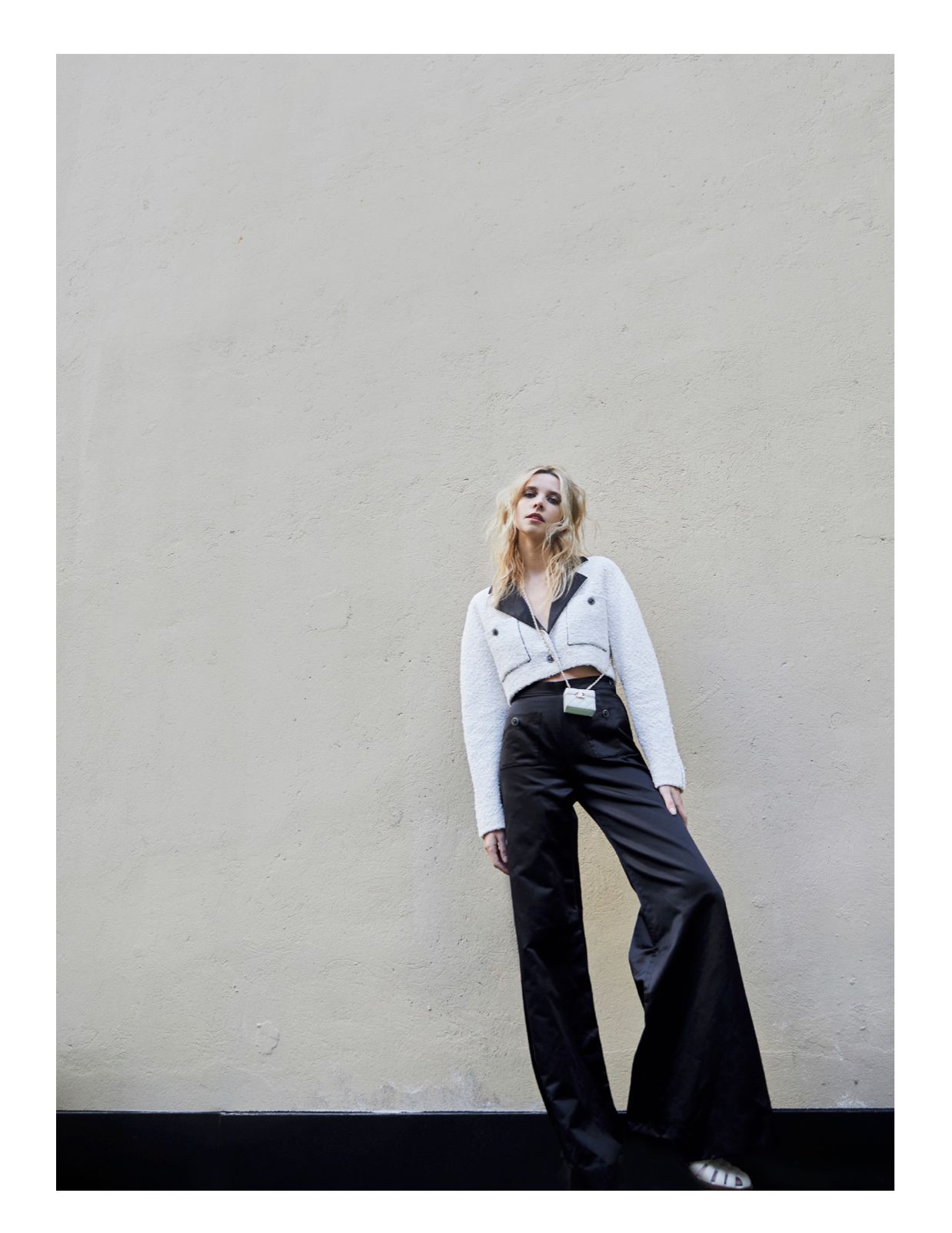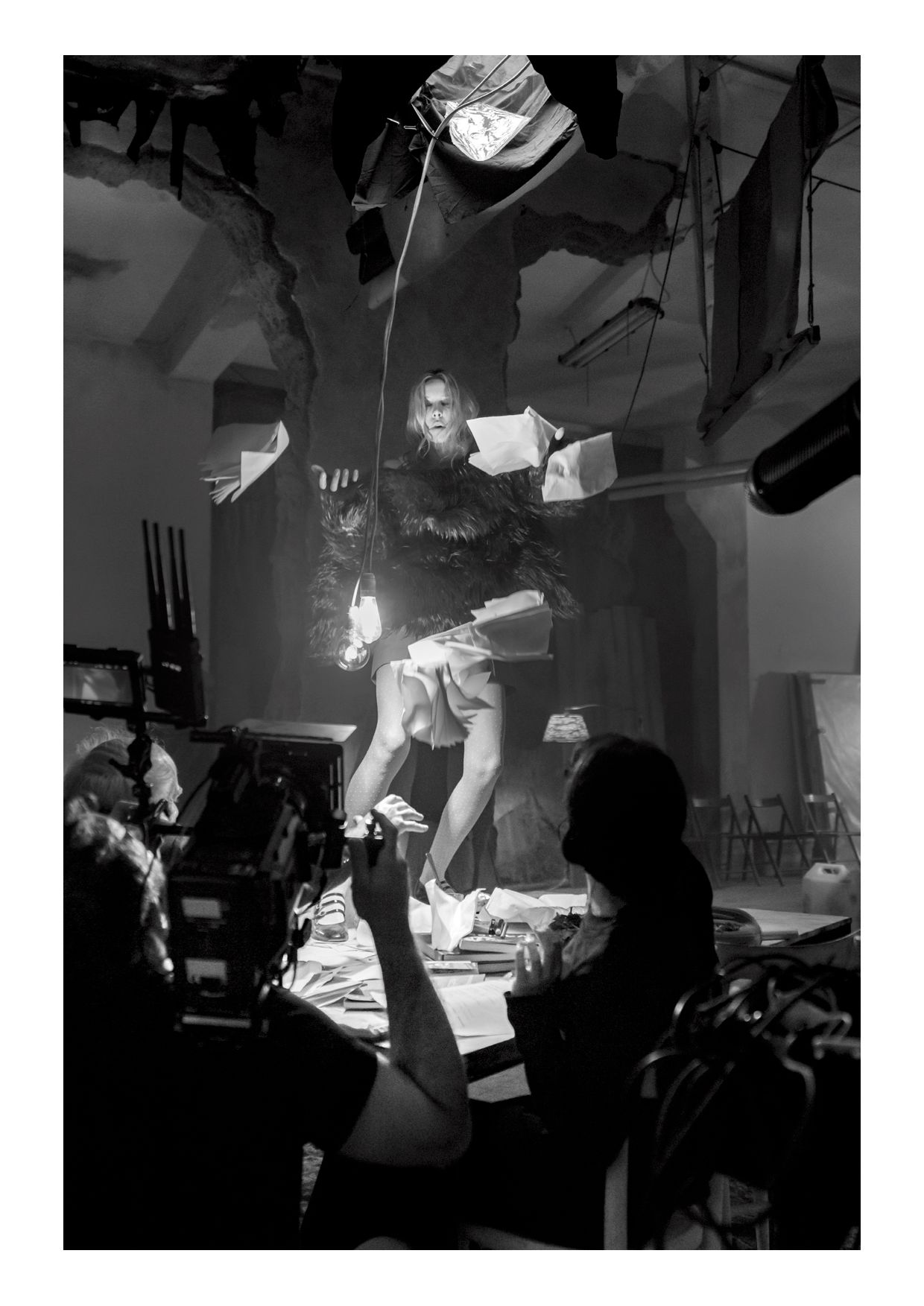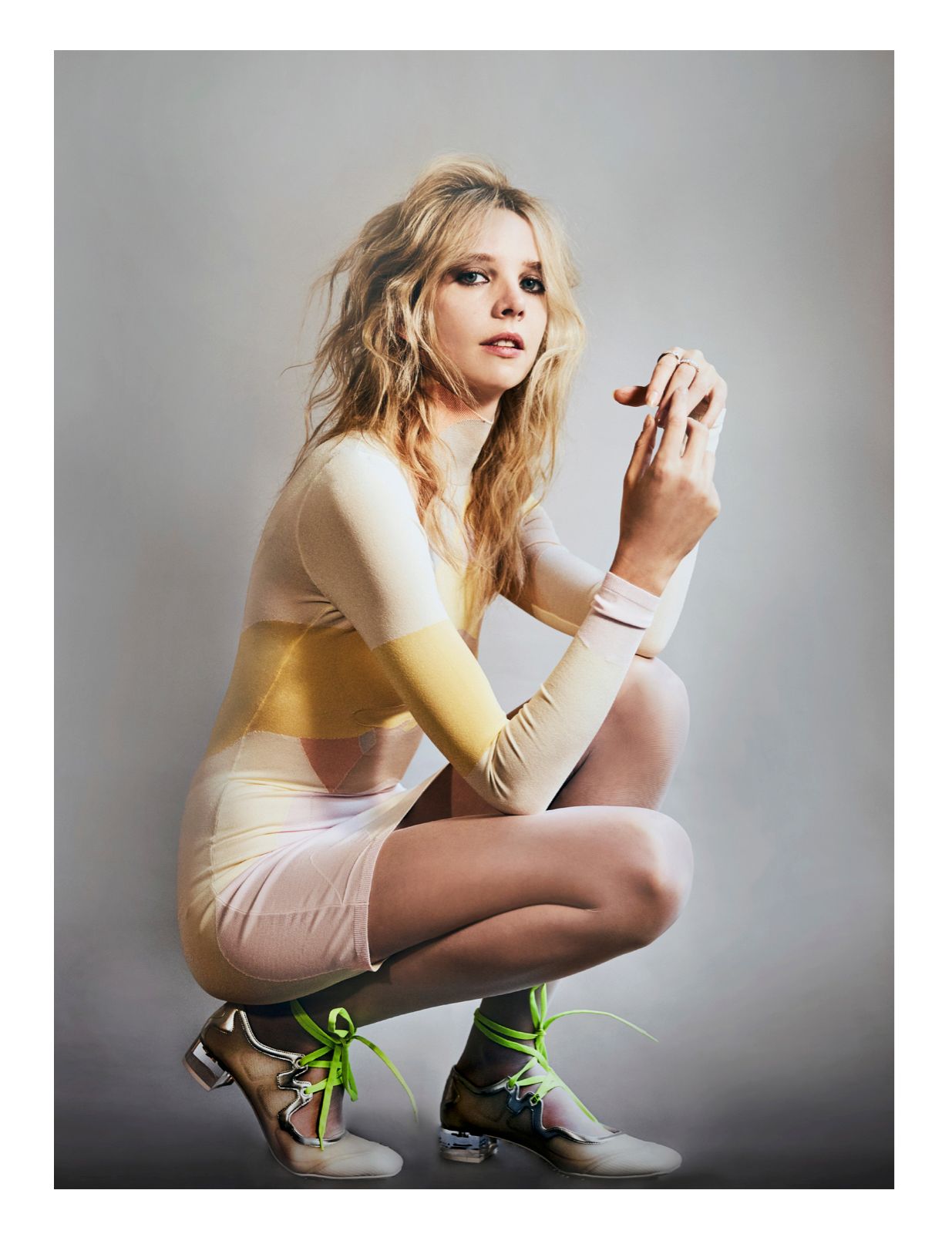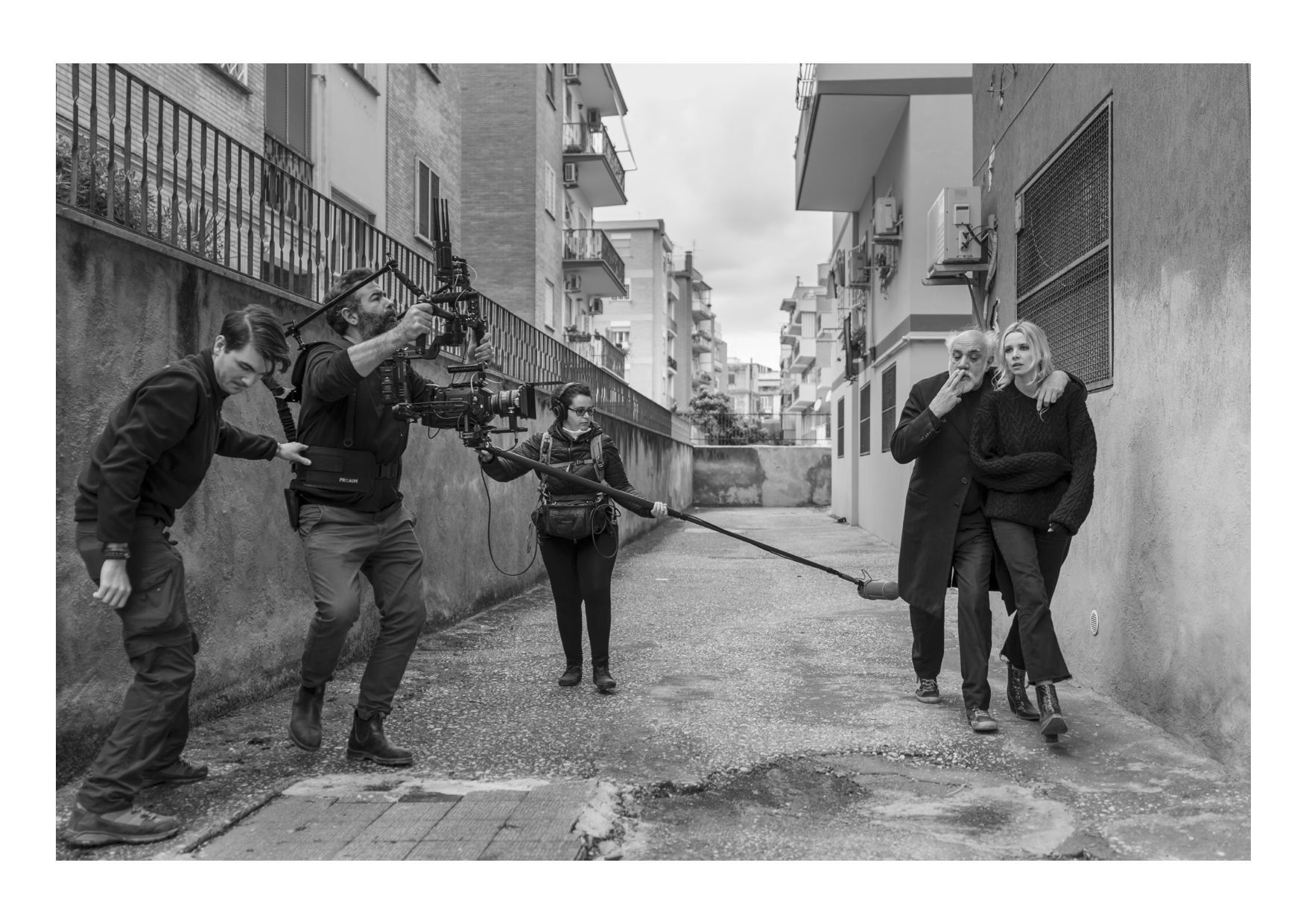
There are many among the millennial milieu of digital-savvy influencers who would describe themselves as polymaths, but poet, actress and model Greta Bellamacina can genuinely lay claim to the overused adage, having found real success in each of her chosen mediums of expression, not least with her mid-pandemic debut feature Hurt By Paradise – a semi-autobiographical paean to North London life recounting the story of of a single mother and poet looking for a break in the publishing industry. Whether she is gracing the pages of style magazines, directing, acting, or simply locking herself away for days on end to explore the inner landscape of the soul, she approaches everything she does with good humour and modesty. In this exclusive interview, she opens up to Collective Culture about what drives her to create, and explains why she is always seeking to give voice to the intangible silent truths of reality.
How would you define your personal philosophy and approach to the creative life?
It’s about risking your heart every time. Whether it’s a poem or a film, it needs to be a risk of your full heart. I have to lock myself away in order to really turn in and let all the voices flood in. I think that’s why I like small rooms to create in – it’s easier to hear all of the voices in them. I don’t really have any routine, I just simply have to put pen to paper. I have to be able to let all the voices present themselves. I like there to be room in the work that I create. I don’t like my characters to be fully formed, I don’t like my writing to have every answer – it should simply be a moment, or an awakening. A lot of my poems end with questions. Acting and writing poetry have been the most consistent things in my life. I did both from a young age, and I like the possibilities of both art forms. I think these dual forms of expression are very deeply rooted within me. Directing has been more of a gradual process, but I don’t really differentiate the roles as such. I look at them all as playing a part to telling the truth – to revealing the silent truths of the world, giving a voice to the unheard world.

Can you recall the first film that made you want to carve a career in the film industry?
I would have to say films like Badlands and Days of Heaven, by Terrence Malick and Wings of Desire by Wim Wenders. Malick’s films were the first time I’d seen female characters that were complicated – often dressed with feminine dresses and ribbons, but also raging, and, most of the time, outlaws. I like the odyssey aspect to these films – the characters were really rooted in the land, in the fields on the roads, in the heavens. Something about time and space really lives in these films. It’s amazing to think those twilight scenes where everything is shot on 35mm. I also watched a lot of musicals when I was young, like Wizard of Oz, My Fair Lady and Moulin Rouge. These films are the soundtrack to my youth – as a teenager at school we did Wizard of Oz, I was the dancer who played the part of ‘yellow brick road’. It’s quite a surreal first role, looking back.
Talk to me about your latest project filmed in Italy…
I spent the last month in Rome making a film about the borders between creativity and mental illness with the avant-garde film and theatre director Riccardo Vannucini. I played a character Irene, who is mentally ill, taken away from her children, and living in a mental hospital, where she dreams of making a film with one of the other patients. The film is called Commedia and is inspired by Riccardo’s theatre work within these hospitals in and around Rome. Neither of us spoke the same language, so we had a translator between us the whole time. But a lot of the film is told in movement, bringing a bit of the psychical theatre of Pina Bausch into film. There was something quite special in telling a story in the silent truths of movement. We filmed a lot of the film in Ostia, which is the beach town to Rome where Pasolini was killed, and the surrounding areas. The film shows a completely different side of Rome – less romantic, more cold and real.

What do you consider to be your greatest achievement in life so far?
My poetry collection Tomorrow’s Woman, it came out in 2020 with US publisher Andrews McMeel, we managed to launch the book in Baltimore at The Winter Institute, just before the pandemic. Since the beginning, I had always been self-publishing my work – having a big US publisher pick it up felt like a huge achievement. Any small amount of money I had when I was younger I would use to make my own poetry pamphlets. I’d always go straight to the poetry section in a bookshop. I think I learnt to understand poetry the older I got, but I knew quite early on that I understood its form. When I was in my early 20s I travelled around America, paying homage to the beat poets’ footsteps. To have my poetry published in America and scattered over their territory is a huge personal achievement.
Who or what has most inspired you in your life to date and continues to inspire you today?
I think it’s all about creating a community around you with other people who share similar pictures of the world. People who are prepared to go on the same flight. I find inspiration in working several times with someone. It’s rare in creative industries to do that, but I think it can be a very special thing. I’ve acted in two features films by Emmy Award winning director Jaclyn Bethany, Indigo Valley and Highway 1, which were both shot in Los Angeles. Now we have just co-written our first feature film together called Tell That To The Winter Sea, which we are aiming to shoot this spring. It has been hugely inspiring working with someone so collaboratively in all aspects of film and really exploring each other’s position on things both big and small.
Who are you reading at the moment?
I always keep poetry books by my bed and in my bag, I like to have several on the go. I recently read a lot of Pasolini poems when I was filming in Rome. I like to ground myself in the local literature, especially when I am in a foreign place for a while. I found an old translated collection in a charity shop before I left, that is published by City Lights, called Roman Poems. I like to wonder around a city and keep their voices in my head, especially when I am travelling alone. I also love Deborah Levy, I like the form she writes in – a sort of living diary of her place in time... Books are the one thing I collect, it’s probably my biggest burdening joy.

How would you say motherhood changed your outlook on life?
I think motherhood is the most profound mirror there is. I think we spend a lot of time searching, but motherhood forces you into the now, especially with young children. A lot of the adolescent mind is so deeply connected in us, that you can’t help look into the past and the present – to hold up the timeline of events of the previous generations before us, and the ones to come. I feel very privileged to be a mother because the children have given me more of an understanding of time and love, more of a reflection into to the world I want to create for them and live in myself. I wrote a lot of poems when I was pregnant about this. Even then there is a power driving you closer to the world turning around you.
Portraits by Chantelle Dosser, courtesy of Greta Bellamacina. Behind-The-Scenes images from the forthcoming film Commedia by Riccardo Vannucini, shot by Flavio Bruno.